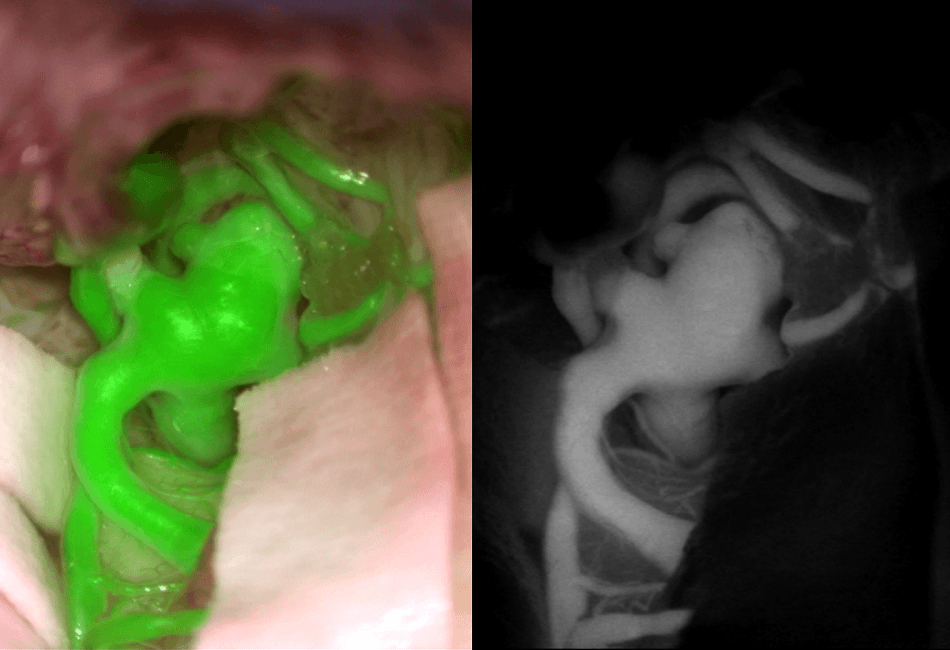
Image Credits: Leica Microsystems GmbH
At the Congress of Neurological Surgeons (CNS) Annual Meeting 2017, Boston, USA, Leica Microsystems will showcase its new groundbreaking GLOW augmented reality (AR) platform featuring the latest innovation in vascular fluorescence imaging: GLOW800 AR fluorescence. Visitors to the booth will also be able to experience FL560 fluorescence, the first FDA 510(k) cleared microscope filter for vascular fluorescence with fluorescein and FL400 the first blue light fluorescence available as a FDA Class I device.
GLOW800 AR fluorescence allows neurosurgeons to observe both the naturally-colored cerebral anatomy and highlighted vascular blood flow in one single augmented, real-time view with full depth perception. The surgeon thus has a complete view of anatomy and physiology to support crucial decisions and actions during vascular neurosurgery.
For the past decade Leica Microsystems has been pioneering new fluorescence imaging technologies in partnership with surgeons to advance surgical practices. GLOW800 and future modalities based on the GLOW AR platform will allow surgeons to perform life-changing neurosurgical interventions with the confidence that they have the best possible visual information right in the field of view.
Markus Lusser, President, Leica Microsystems
Until now, viewing blood flow with Indocyanine Green (ICG) fluorescent agent meant pausing surgery to watch a separate near infrared (NIR) black and white video. The surgeon then needed to recall and reconcile this with the anatomical microscope view. GLOW800 AR overcomes this challenge by combining blood flow information into the natural image. It is the first of many imaging modalities that will be based on the GLOW AR platform.
Leica Microsystems is a company that works closely with neurosurgeons to bring new technologies to the market that really respond to our needs. GLOW800 AR is an exciting new approach which provides a totally new view during vascular neurosurgery. I have excellent spatial orientation and I am impressed with the crisp delineation of vessels. I believe GLOW800 AR fluorescence will have a significant impact on surgical outcomes in the future.
Cleopatra Charalampaki, Professor of Neurosurgery, Cologne Medical Center, Germany
The Congress of Neurological Surgeons (CNS) Annual Meeting 2017, takes place in Boston, USA from October 9 to October 11. Visitors to booth #211 will be among the first to view all of Leica’s surgical fluorescence solutions fully integrated into the M530 OH6 surgical microscope platform.
*GLOW800 is not yet cleared for use